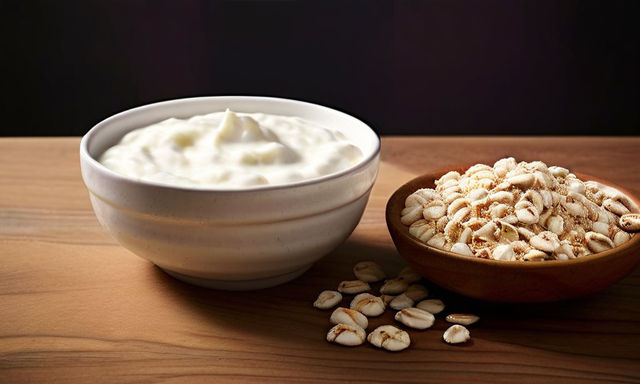Protein and Calories in 100g of Different Foods Video
Protein is a crucial macronutrient necessary for building muscle, repairing tissues, and producing enzymes and hormones. Knowing both the protein and calorie content in foods can help tailor your diet to meet specific nutritional goals, whether it's building muscle, losing weight, or maintaining a healthy lifestyle. This blog post will examine the protein and calorie content in 100g of various common foods and discuss the optimal ratio of carbohydrates, proteins, and fats in a balanced diet.
Protein and Calories in Common Foods
Here’s a look at the protein and caloric content of some commonly consumed foods per 100 grams:
-
1. Oats
- - Calories: 370 kcal
- - Protein: 11g
- Oats are a great source of complex carbohydrates and fiber, making them ideal for a sustained energy release throughout the day.
-
2. Protein Powder
- - Calories: 409 kcal
- - Protein: 75g
- Protein powders are a concentrated source of protein often used to supplement dietary intake, especially useful for muscle repair and growth after exercise.
-
3. Peanut Butter
- - Calories: 567 kcal
- - Protein: 25g
- High in calories and healthy fats, peanut butter is also a good source of protein, perfect for satiety and flavor.
-
4. Greek Yogurt
- - Calories: 60 kcal
- - Protein: 10g
- Low in calories but high in protein, Greek yogurt is an excellent choice for those looking to increase their protein intake without adding too many calories.
-
5. Chicken Breast
- - Calories: 105 kcal
- - Protein: 23g
- Known for its high protein content with low calories, chicken breast is favored in many diets focusing on muscle building and fat loss.
-
6. Cashews
- - Calories: 700 kcal
- - Protein: 20g
- Though high in calories, cashews provide a good amount of protein and healthy fats, but should be consumed in moderation.
-
7. Lentil Pasta
- - Calories: 360 kcal
- - Protein: 21.5g
- As a plant-based protein source, lentil pasta is an excellent alternative to traditional pasta, offering more protein and fiber.
-
8. Cheddar Cheese
- - Calories: 402 kcal
- - Protein: 25g
-
Rich in protein and calcium, cheddar cheese is
calorie-dense and should be consumed in
controlled portions.
Daily Protein Needs
The amount of protein you need each day can vary significantly based on factors like age, sex, weight, and level of physical activity. General guidelines from the Dietary Reference Intake suggest that:
Ideal Macronutrient Ratios
The balance of macronutrients (carbohydrates, proteins, and fats) in your diet can significantly impact your overall health. The ideal macronutrient distribution can vary depending on individual health goals, activity levels, and dietary preferences. However, general guidelines from the Dietary Guidelines for Americans suggest the following ratios:
- - Carbohydrates: 45-65% of total daily calories
- - Proteins: 10-35% of total daily calories
- - Fats: 20-35% of total daily calories
These ratios ensure that you are getting enough energy from each macronutrient group to support bodily functions, promote satiety, and maintain a healthy weight. For someone on a 2,000 calorie diet, this could mean consuming 200-700 calories from protein, 900-1300 calories from carbohydrates, and 400-700 calories from fats each day.

Conclusion
Understanding the protein and calorie content of different foods helps you make informed decisions that align with your nutritional goals. Whether you are trying to lose weight, gain muscle, or simply maintain a healthy lifestyle, balancing your intake of proteins, fats, and carbohydrates is crucial. Remember, every individual’s needs can vary, so it may be beneficial to consult with a nutritionist or dietitian to tailor your diet to your specific requirements.
Disclaimer: This blog post is for informational purposes only and does not constitute medical advice. Always consult with a healthcare professional before making significant changes to your diet, especially if you have specific health conditions or dietary needs.
Ready to level-up?
Create meal plans 10x faster, follow up with your clients through our mobile app, and never struggle with meal planning or recipe management again.